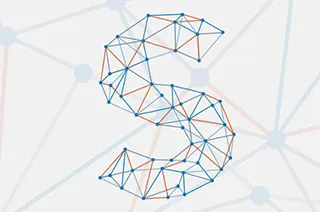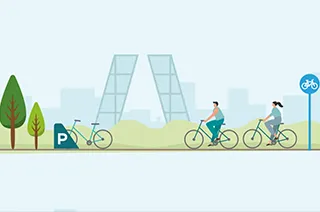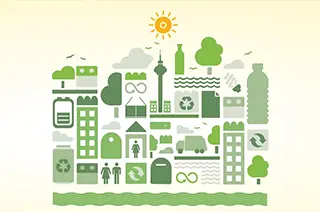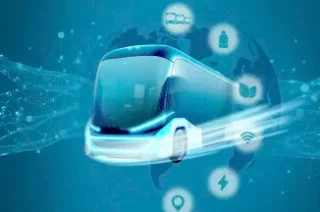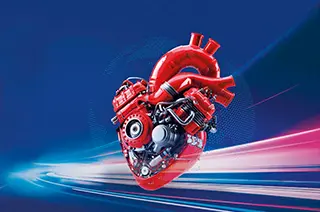Events on Sustainability
At IFEMA MADRID we offer you a series of events developed to reduce their negative environmental impact.

11Events found
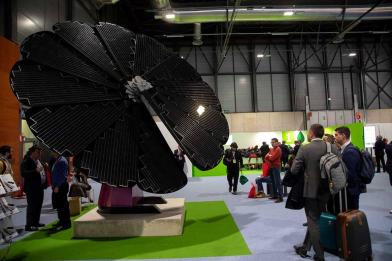
What is exhibited
The sustainability fairs at IFEMA MADRID showcase a wide variety of solutions and practices geared towards environmental preservation and sustainable development. They include renewable technologies such as solar panels and wind turbines, as well as energy efficiency systems. In addition, proposals related to sustainable mobility, waste management, sustainable agriculture and food, green building and environmental innovation are presented. These events also offer conferences, panel discussions and interactive activities to promote the exchange of knowledge and experience among participants.
Sustainability at IFEMA MADRID
The sustainability fairs held at IFEMA Madrid are key events that bring together experts, professionals and companies committed to promoting sustainable practices in various sectors.
The Salón Internacional de Soluciones para la Rehabilitación y Reforma (SRR) is a platform where the latest innovations and technologies in the field of urban rehabilitation and energy efficiency in building are presented. The Foro de las ciudades addresses issues related to sustainable urban development, urban mobility and the efficient management of resources in urban environments.
Tecma, as an international trade fair for Urban Planning and the Environment, focuses on urban environmental management, waste collection and treatment, urban cleaning and sustainable mobility in urban environments.
Momad is a key event for the sustainable fashion industry, where ethical and sustainable fashion collections are presented, as well as new technologies and responsible business practices in the field of fashion.
On the other hand, Construtec and Matelec are trade fairs that address sustainable construction and energy efficiency in the construction sector, presenting the latest trends and solutions in eco-friendly materials, renewable energies and near-zero energy buildings.
Global Mobility Call focuses on sustainable mobility, showcasing advances in electric vehicles, charging infrastructures, efficient public transport systems and innovative solutions for cleaner and more sustainable urban mobility.
Finally, Fitur, the International Tourism Fair, highlights the importance of sustainable tourism, promoting responsible practices and tourist destinations that respect the environment, local culture and contribute to the economic and social development of host communities.
These fairs not only provide a space for the exhibition of sustainable products and services, but also encourage the exchange of knowledge, experiences and best practices, thus fostering the transition towards a more sustainable future in different areas.
Visitor profiles
The sustainability fairs at IFEMA MADRID attract a wide range of people committed to environmental protection and sustainable development. Attendees include:
- Environmental professionals: Environmental engineers, scientists, renewable energy experts, waste managers and other specialists in areas related to sustainability.
- Entrepreneurs and corporate leaders: Representatives of companies interested in adopting more sustainable business practices, as well as entrepreneurs seeking opportunities in the sustainability market.
- Officials and policy makers: Government representatives at local, regional and national levels seeking policies and strategies to promote sustainability in their respective jurisdictions.
- Engaged citizens: People interested in learning about sustainable solutions to implement in their daily lives, from waste management to mobility and responsible consumption.
In terms of specific profiles:
- Solutions for Cities: Urban planners, architects, urban planners and city officials interested in improving sustainability and quality of life in urban environments.
- Sustainable mobility: Transport professionals, road infrastructure experts, electric vehicle designers, public transport users and citizens concerned about reducing the carbon footprint related to mobility.
- Sustainable fashion: Ethical fashion designers, sustainable clothing manufacturers, circular fashion advocates, consumers aware of the importance of sustainability in the fashion industry.
Sustainability Sector
The sustainability sector in Spain has experienced significant growth in recent years, in line with the growing global concern for climate change and environmental conservation. Likewise, Spain is one of those countries that are favourable to the exploitation of sustainable natural resources such as the sun as the main spearhead.
In terms of renewable energy, Spain has been a leading player, especially in wind and solar energy. Over the last decade, it has seen a significant increase in the installation of wind farms and solar plants, making it one of the European leaders in this field. This expansion has been driven by a combination of supportive policies and technological advances that have made renewables increasingly cost-competitive.
In addition to renewable energy, energy efficiency has emerged as a priority in Spain. The country has embarked on initiatives to reduce energy consumption in buildings and industry, as well as to promote sustainable mobility. Building renovation programmes are being implemented to improve energy efficiency, and incentives are being promoted for the adoption of electric vehicles and the use of public transport.
Waste management is another key aspect of the focus on sustainability. Spain has made progress in promoting recycling and waste reduction, with policies that encourage waste separation at source and the implementation of selective collection programmes. In addition, strategies are being developed to promote the circular economy, with the aim of minimising waste and maximising the use of resources.
Sustainable tourism is also gaining relevance in Spain, a country known for its important tourism industry. Initiatives are being implemented to promote more responsible and environmentally friendly tourism that preserves the country's natural and cultural resources.









